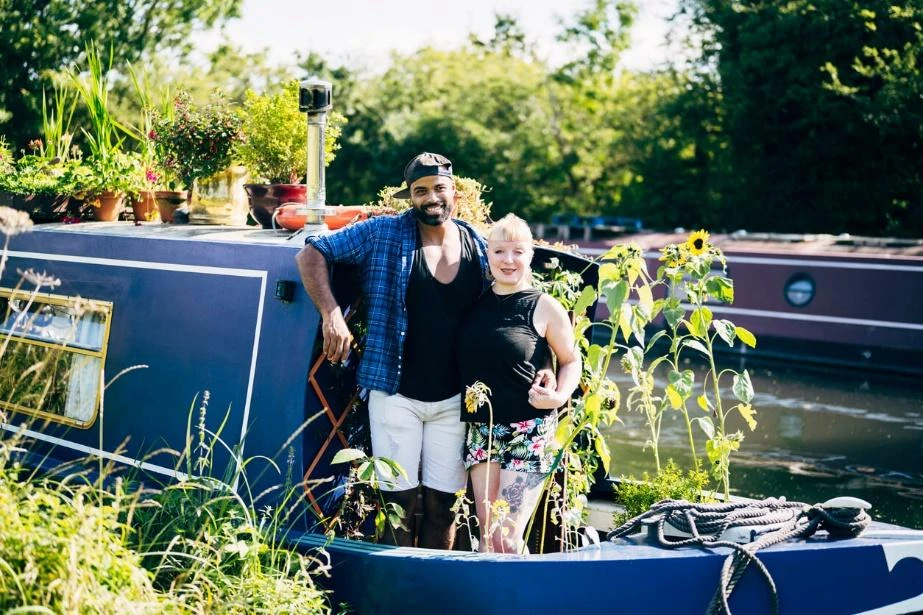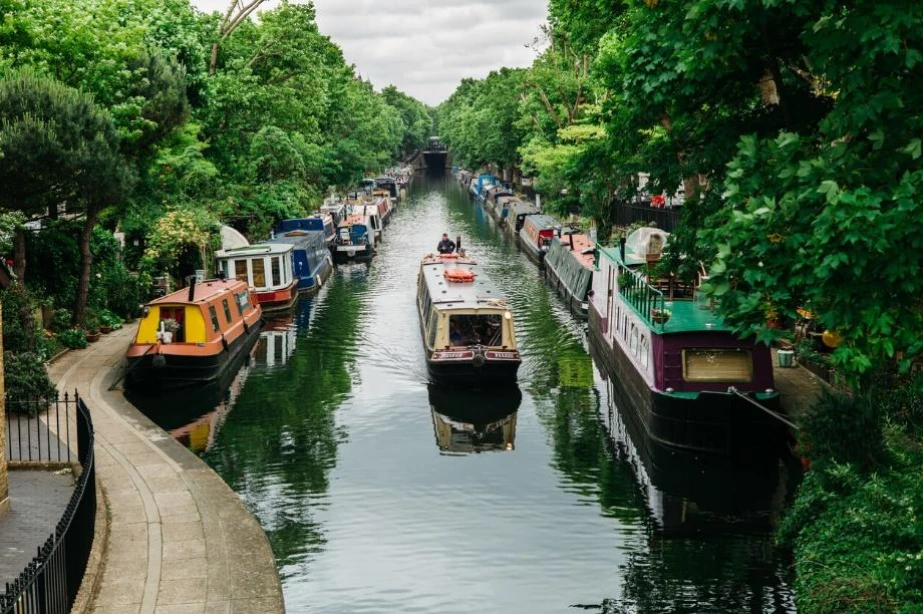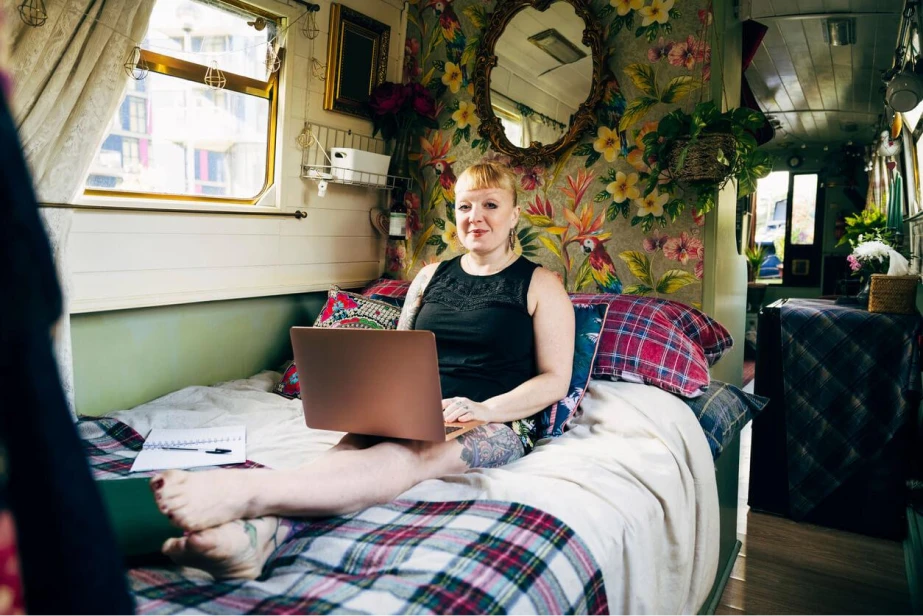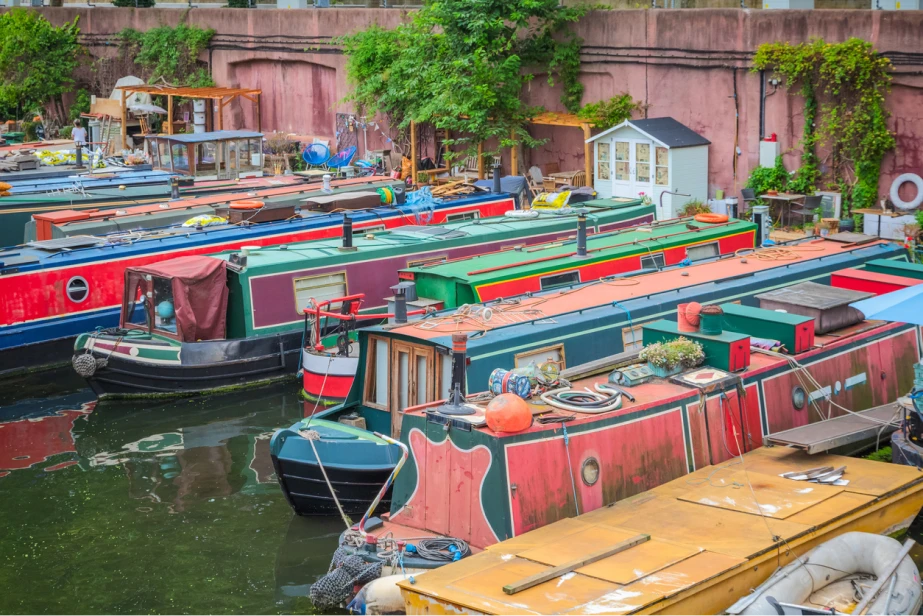
Buying a canal boat is a huge commitment and a decision nobody should take lightly. No matter how often you use your boat, once bought, it becomes a huge part of your life.
That said, there’s a reason why life on the water is attractive to so many people. Despite the ongoing maintenance and often copious TLC that boats require, owning one offers endless fun and possibilities for people, young and old.
But buying a canal boat can be challenging, especially for first-time boaters. Besides having many factors to take into account, the boat market itself is littered with potential obstacles for buyers.
In this guide, we’ll navigate some of these obstacles to give you a better understanding of the market and how to go about buying your first boat.

First thing first, ‘canal boat’ is a very broad term—you may want to determine what specific type of canal boat you want to buy before getting into the nitty gritty of your search. Some of the most common canal boats you’ll find on the UK waterways include:
Canal boats are hugely varied, and you’ll often find a wide range of styles, features and layouts reflected across the market, so it’s good to have an idea—even if rough—of what you’re looking for.
However, remember that canal boats can be renovated and redesigned (depending on your budget, of course), so it needn’t be a huge issue if the one you’re buying doesn’t meet your brief to a tee.
After all, there’s also a lot to be said for going into the market with an open mind!
Knowing your budget is one of the most important steps in buying a canal boat and can help streamline your search for a quicker purchase.
Buying a canal boat is not cheap. Of course, the cost of a boat depends on various factors, such as what type of boat it is, its size, how old it is, and whether it’s had any repair or renovation work done to it in the past.
All things considered, you could expect to pay anything from £10,000 for an older, used boat to up to as much as £150,000 for a custom-built barge with all mod cons.

Before buying a canal boat, it’s wise to have it surveyed by a qualified marine surveyor. Surveyors can check for faults or damage to the boat’s hull or internal infrastructure and advise on the best approach to resolving them.
Though you might think a boat looks in good shape on face value, a qualified surveyor can spot some of the perhaps less obvious things that the untrained eye may have missed. This could stop you from buying a canal boat that’s fraught with potential future problems and costly repair jobs.
A boat survey can typically cost between £400-£700, depending on the size of the boat. The YDSA lists details of professional surveyors to help you find one relevant and local to you.
Besides having your boat professionally surveyed, you should also carry out your own self-inspection—even if you don’t necessarily see yourself as a boating ‘expert’.
The chances are you’d never buy a house before having a tour of it first, so why change those principles when buying a canal boat?
Carry out a thorough check of the boat and all its components, such as the battery, engine and gearbox, and raise any issues or questions with the seller.
Even if the boat is brand-new, don’t assume everything is in order!
Related: How to inspect a second-hand boat before buying

There’s so much more to buying a boat than just the initial price and purchase. Even if you only use your boat periodically, running and maintaining it is often a 24/7 process.
From daily checks for oil and electrical safety to monthly engine and battery checks, running a boat must be taken seriously, so ask yourself whether you’re prepared to commit to this before making any purchase decisions.
If the answer is no, then perhaps hiring a boat for a holiday would be a better option than buying one outright. Other costs to consider when buying and owning a boat include:
All of these costs will vary depending on the type of boat you choose to buy, so make sure you consider this alongside the cost of the boat itself and speak to a broker if you’re unsure.
Related: Narrowboat maintenance: everything you need to know

There may be several reasons why you’re interested in buying a boat, but if you can define your primary reason, navigating the market will be a whole lot easier.
For example, are you planning to live on your boat full-time or use it for holidaying? Are you using it merely for leisure purposes, or do you plan to use it to run a business, such as a floating café?
All of these things will have a bearing on not just the type of boat you buy but the relevant licences and certifications you’ll need to arrange, too.
The choice between buying new or used is one that all prospective boat owners face, but it is a choice only you, the buyer, can make for yourself. Your budget or general priorities will often determine your final choice, but it’s important to consider your options on both sides.
The advantages of buying a used boat include:
However, a used boat comes with a greater risk of needing more maintenance and repair work. Buying new, on the other hand, will mean:
Nine times out of ten, buying a brand new boat will be the more expensive option of the two, but weigh up all the pros and cons before making a decision. If you do decide to buy new, it’s advisable to go through a broker. The boat market can be a minefield, especially if you’re new to it.
Related: New or used boat—how to decide which type of boat to buy
If you’re still toying with the idea of buying a boat but have not yet fully decided either way, hiring one out for a weekend is a great way of getting a taste of the lifestyle.
Look for local boat hire companies and arrange to get out on the water to give things a go. It could just turn out to be the deciding factor!

Word-of-mouth is a powerful tool, and you can often learn a lot from chatting with other people who have been through similar things to you.
Talk to existing boat owners and ask them everything you want to know. For example:
Write a list of questions in advance to ensure you leave no stone unturned. You’re far more likely to get honest, realistic answers and advice from a real-life boater than a seller desperate to make a profit or commission bonus!

Once you’ve bought your boat, you may wish to consider insuring it with specialist boat insurance for peace of mind.
Although boat insurance is not a legal requirement, boaters potentially put themselves at risk of suffering serious financial loss by not having it. Plus, having valid insurance is often an entry requirement for many UK ports and marinas. The last thing you want is to arrive to moor up for the night to find you can’t get in!
You can build a bespoke policy through Insure4Boats to protect your boat against theft, accidental and malicious damage, and salvage charges. You can also get up to £3m worth of Third Party Liability cover for your legal costs should you be deemed responsible for injury to another person or damage to third-party property while using your boat.
A post by Tom Green of Insure4Boats. Specialist boat insurance.